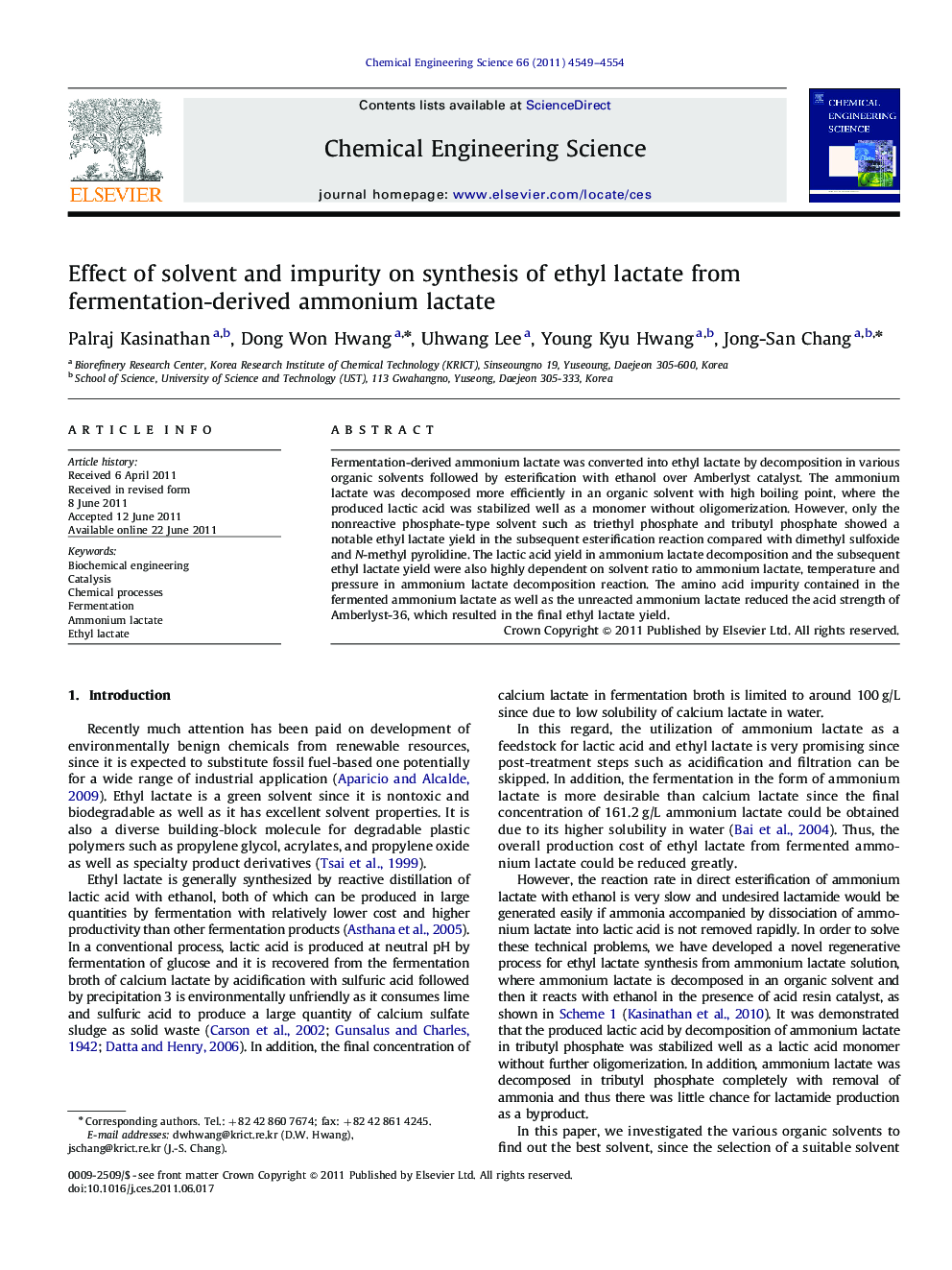| Article ID | Journal | Published Year | Pages | File Type |
|---|---|---|---|---|
| 156240 | Chemical Engineering Science | 2011 | 6 Pages |
Fermentation-derived ammonium lactate was converted into ethyl lactate by decomposition in various organic solvents followed by esterification with ethanol over Amberlyst catalyst. The ammonium lactate was decomposed more efficiently in an organic solvent with high boiling point, where the produced lactic acid was stabilized well as a monomer without oligomerization. However, only the nonreactive phosphate-type solvent such as triethyl phosphate and tributyl phosphate showed a notable ethyl lactate yield in the subsequent esterification reaction compared with dimethyl sulfoxide and N-methyl pyrolidine. The lactic acid yield in ammonium lactate decomposition and the subsequent ethyl lactate yield were also highly dependent on solvent ratio to ammonium lactate, temperature and pressure in ammonium lactate decomposition reaction. The amino acid impurity contained in the fermented ammonium lactate as well as the unreacted ammonium lactate reduced the acid strength of Amberlyst-36, which resulted in the final ethyl lactate yield.
► Ethyl lactate was produced selectively from ammonium lactate by hybrid process. ► Triethyl phosphate was the most efficient solvent for ethyl lactate synthesis. ► The ethyl lactate yield was influenced by the fermentation-derived amino acid.
